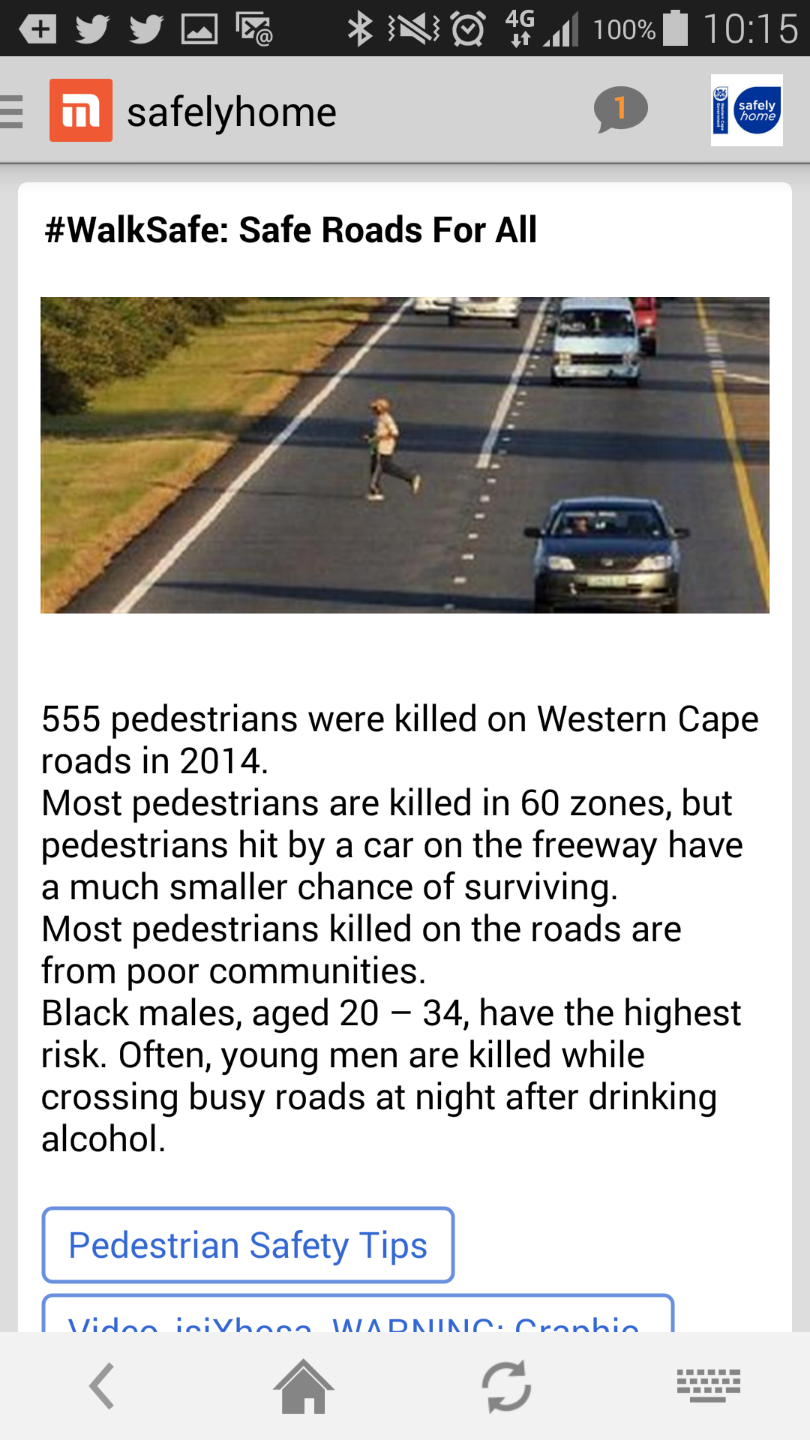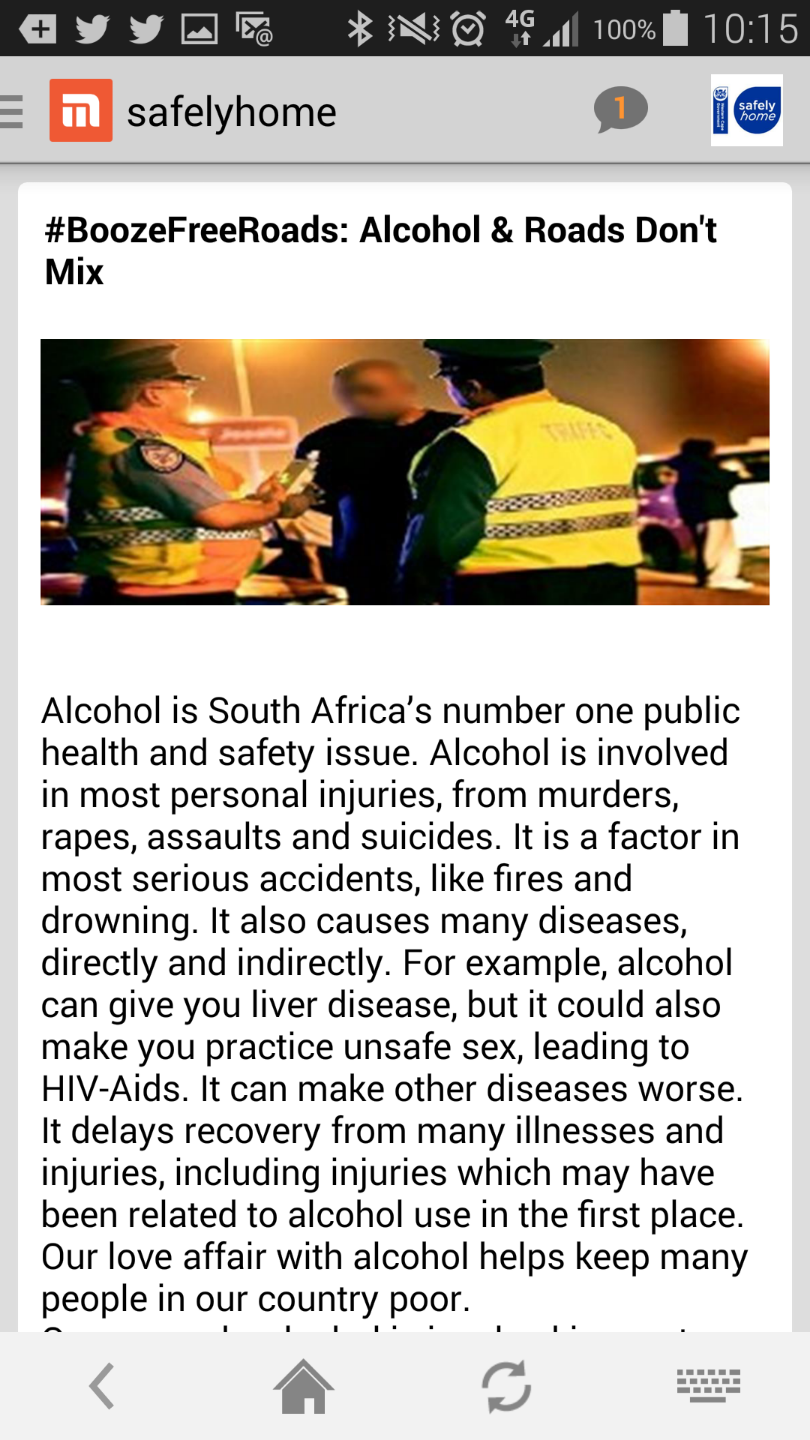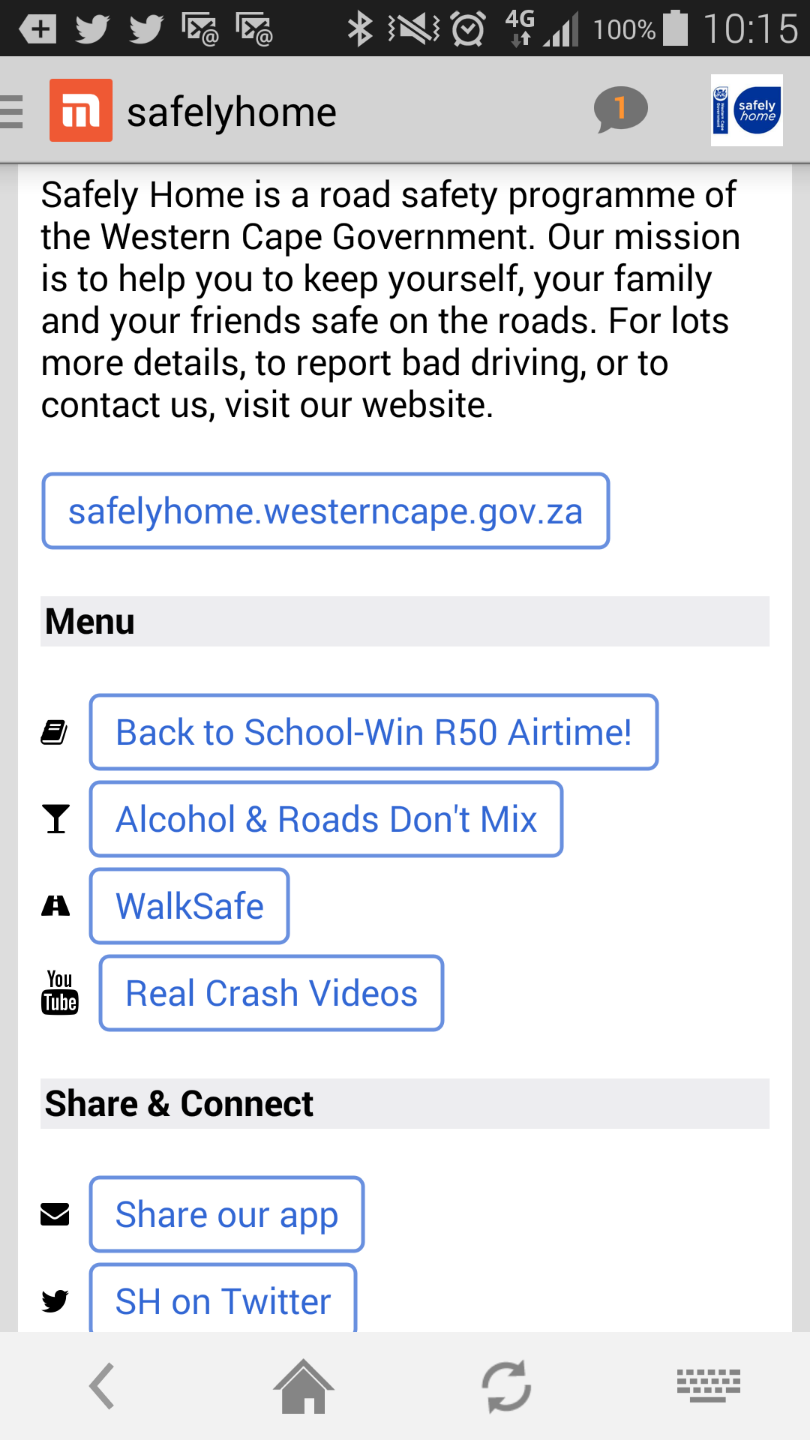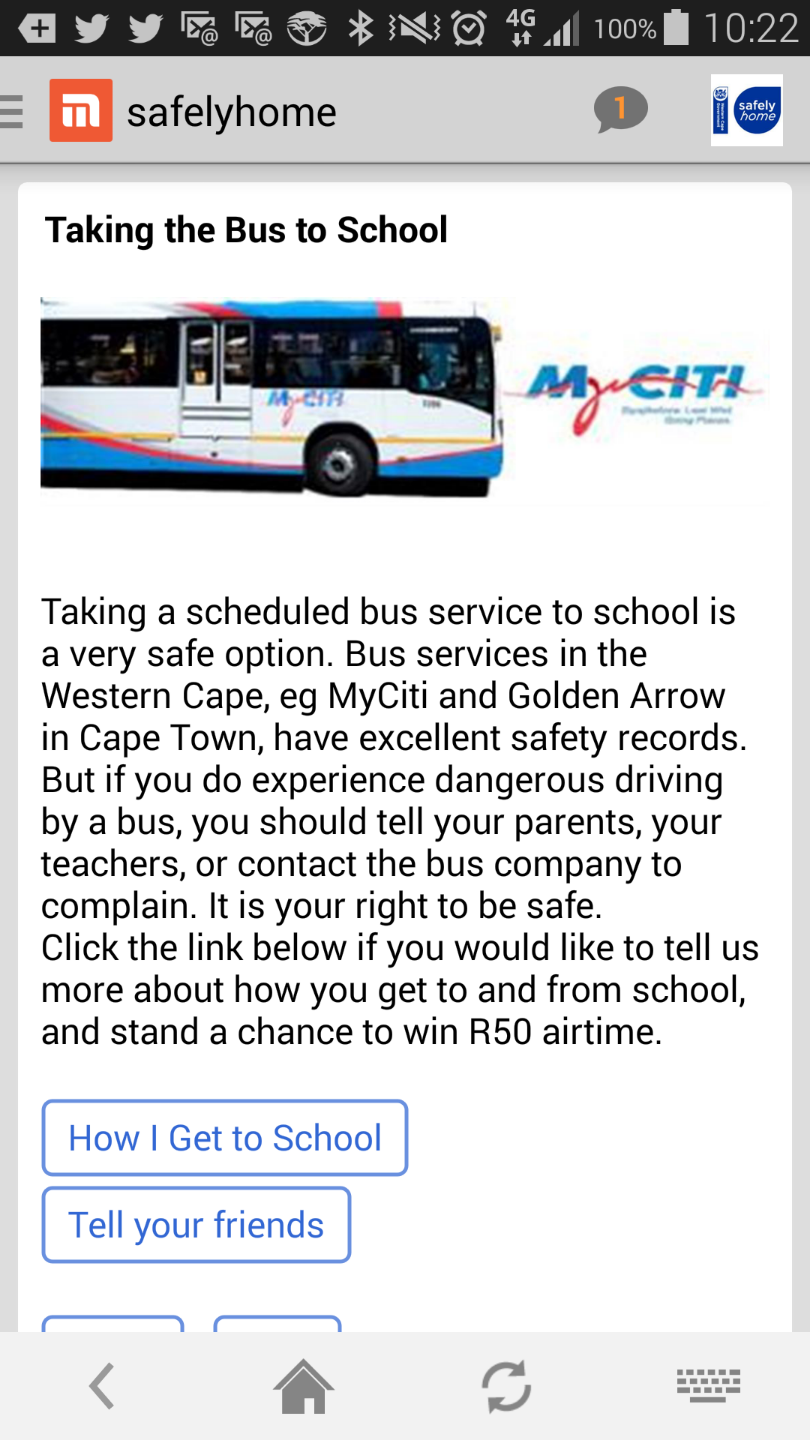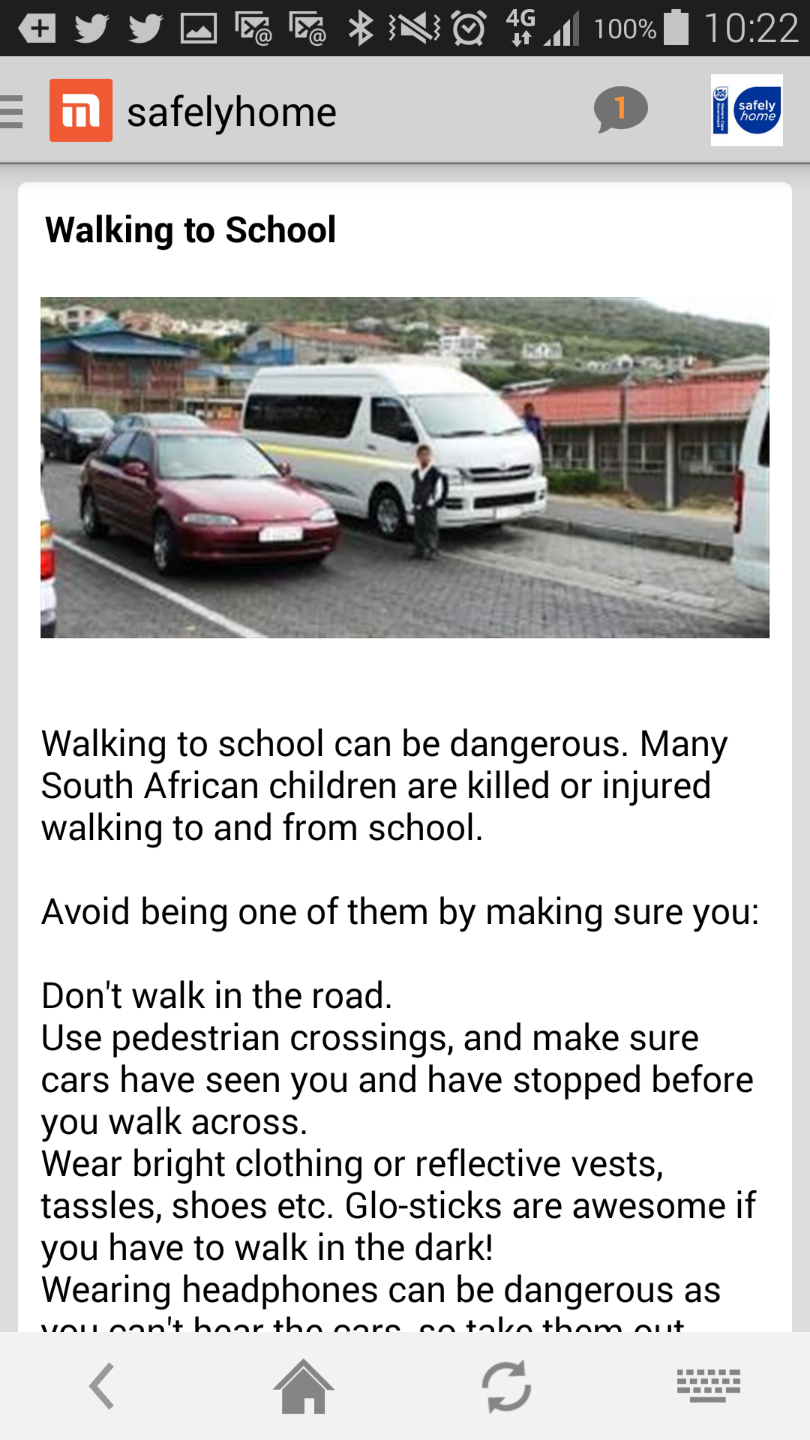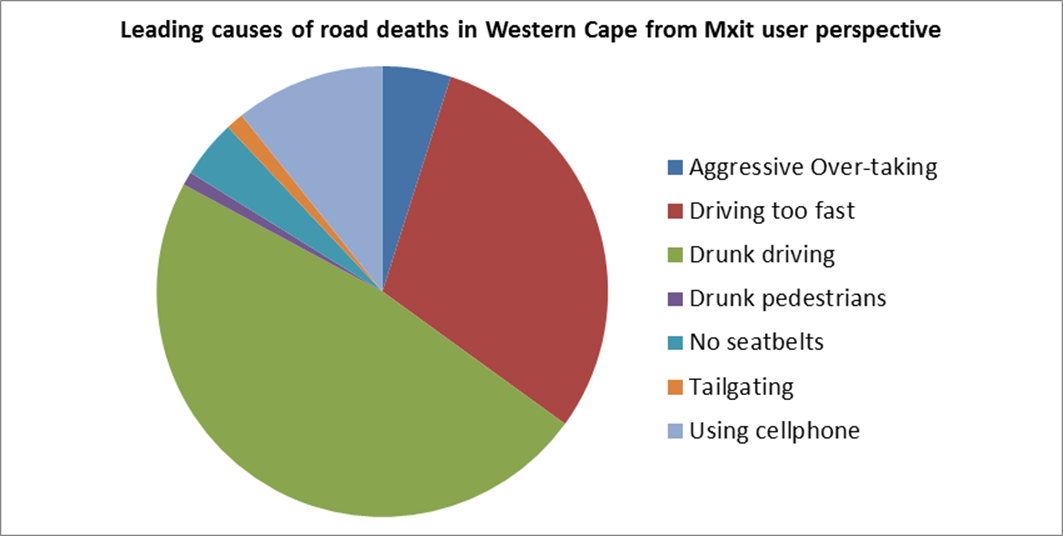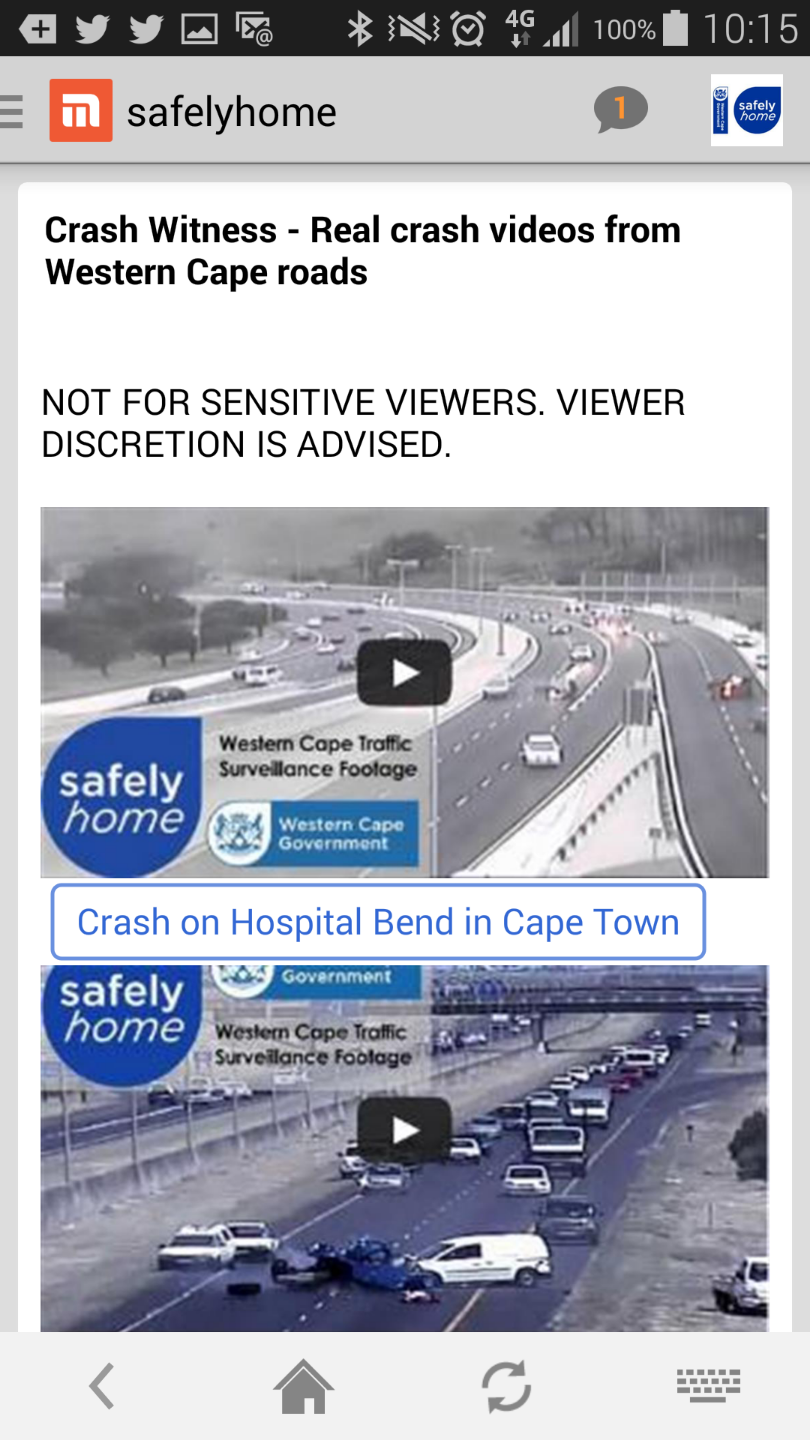
News
Safely Home Extends Reach to Youngsters via New Mxit App
We are very excited to be extending the reach of our road safety campaign to one of the more vulnerable road user groups, young people, through our new Safely Home Mxit application.
The app is specifically targeted at young children living in the Western Cape, offering an interactive platform for sharing, as well as R50 airtime prizes. Mxit was chosen because it gives Safely Home access to an audience who are usually harder to reach via traditional and social media, including Facebook and Twitter.
Mxit also appeals to young people from poorer communities due to its low cost and easy accessibility from a wide range of mobile devices, including old feature phones. The app went live on 19 January 2015 in order to coincide with pupils returning to school.
The content on the app mirrors the content on our website, Twitter account, the Variable Message Signs (VMS) on the freeways and the radio and poster campaigns that we run in accordance with the Safely Home calendar.
The app is focused primarily on giving young children advice on getting to and from school safely, as well as educating them on the dangers of drinking and driving, and drinking and walking. Drinking and walking adversely affects poorer communities, and causes as many deaths as drinking and driving, but gets far less attention in comparison, particularly in the media.
As a result, Safely Home’s pedestrian drinking advertising campaign (“Usele?”) has been rolled out in the poorer communities most affected, especially in the Metro South East. The “Usele?” (“Have You Been Drinking”) drinking and walking advertisements are currently being aired on Umhlobo Wenene and Radio Zibonele until end of February, with drinking and driving advertisements airing concurrently on various English and Afrikaans stations.
Since the app went live at the beginning of last week, 24 180 youngsters have signed up to the app. We have to date received 1 688 entries into a lucky draw to win the R50 airtime prizes, in which we asked young people to tell us about how they get to school, and how they feel about safety on our roads.
We also provide daily messages to our members encouraging them to stay safe on the roads, empowering them with the information they need to do so, and asking that they encourage their friends and families to also adopt a positive attitude towards road safety. Messages on the app encourage youngsters to:
- Adopt safe pedestrian behavioural practices.
- Wear seatbelts in the front and the back of vehicles.
- Not get into a car with a drunk driver or someone who uses their cellphone while driving.
- Be aware of the role that speed plays in the frequency and severity of road crashes.
We have to date received hundreds of comments and insights on how young children feel towards road safety. It has been inspiring to see that young people in the Western Cape are, in many ways, ahead of adults in their clear understanding of the dangers on our roads. For example, when asked to identify the leading cause of death on South Africa’s roads, 48% identified “Drunk driving” and 30% identified “driving too fast” as leading causes.
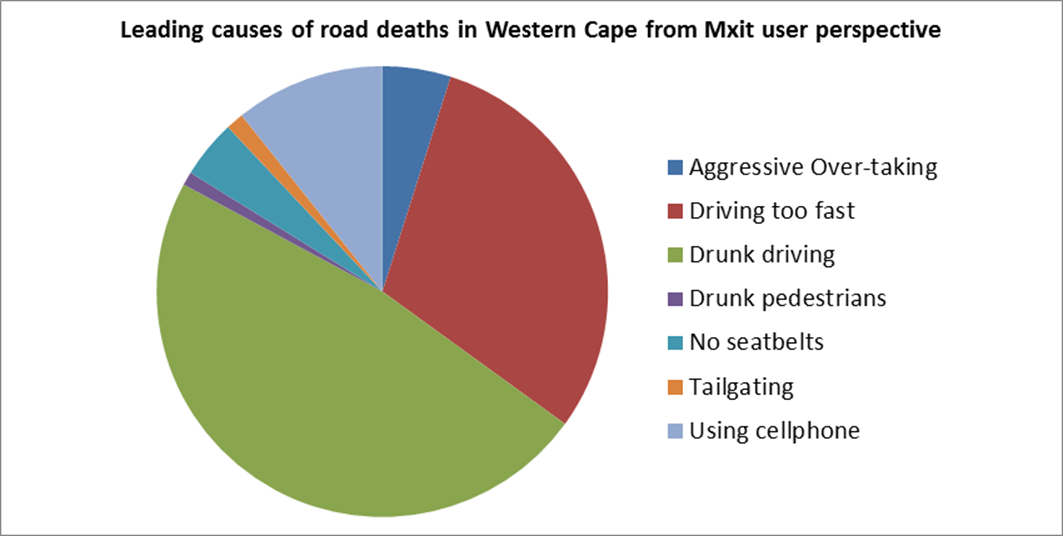
What is also alarming, but not surprising is that 59% of the youngsters using the app reported that they know someone who has been seriously injured on the road, while 46% reported that they knew someone who had been killed on the road. Analysis of the responses will not be done in depth until the end of the current campaign in March, but even these preliminary figures indicate that our youngsters are well aware and affected by the trauma caused by our refusal to slow down, stop drinking and driving or walking, wear seatbelts and not use our cellphones while driving.
We hope to reach more and more young people through this app which will undoubtedly help us to foster a culture of safe and responsible road use, from as early an age as possible. Educating our children about road safety will invariably go a long way in saving them from becoming yet another chilling statistic on our roads.
Siphesihle Dube
Spokesperson for Minister of Transport and Public Works, Donald Grant
Tel: 021 483 8954
Cell: 084 233 3811
E-mail: siphesihle.dube@westerncape.gov.za

